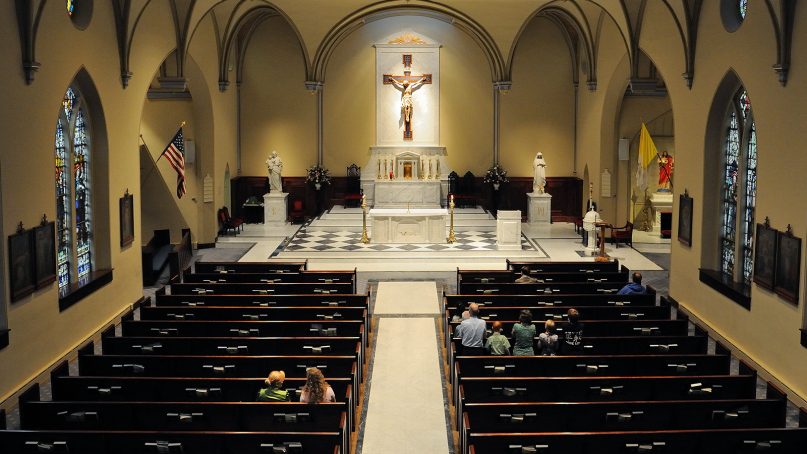(RNS) — When I told my wife that the Rev. Gary Hayes had passed away, she quickly walked across the room, hugged me and quietly said, “I remembered him holding our babies. So much love.”
Gary, the first Catholic priest to speak openly about the sexual abuse he had suffered as a young person, passed away last week at age 66 from cancer. He will be remembered as a dogged advocate for other survivors, but those who knew him will have memories of a man who, though wounded, was more giving than most people who had been through less.
In 1993, with the help of attorney Steve Rubino, Gary filed the first-ever lawsuit charging Catholic officials with racketeering. The Rev. Joseph McGarvey and the Rev. William O’Connell repeatedly molested Gary and two other boys, “conspiring to create a sex ring of children that could be sexually abused by the two priests and other priests,” often taking the kids across state lines “for the express purpose of having forcible sexual contact” with them, the suit said.
Though we were basically neophytes at talking to the media, Gary and I organized news conferences in Camden, N.J., where he had grown up, and in Philadelphia to address the case. Facing dozens and dozens of reporters, Gary stood between his mother and me and softly uttered a line that still brings goosebumps to my skin today.
“I am here seeking justice in the courts because I could find no justice in my church,” he said.
From that day forward, Gary was a dedicated survivor-activist. With every new mean-spirited comment or move Gary endured, I remember being shocked and thinking, “If they treat one of their own so viciously, imagine how they’ll treat a survivor who is not ordained.” Long after he had settled his case, he continued to be shunned by other clergy, but he persevered with grace and determination.
At the U.S. Conference of Catholic Bishops meeting in Texas in 2002, Gary was a much-sought-after interviewee. He was blunt and biting, with no airs, affectations or posturing — just straightforward and prophetic insights that made all of the victims who attended proud to know him.
By then Gary had stepped up to head The Linkup, a key advocacy group for survivors, after Sue Archibald had served admirably in that role for years. Gary led with a steady hand and a kind word while pointedly calling out the continued hypocrisy of the church hierarchy and gingerly inviting survivors to break their silence and get help.
The small and ever-shrinking number of survivors who recall the early days of our movement don’t admit this often, but there were sometimes tensions between our two groups — the Survivors Network of those Abused by Priests (SNAP) and The Linkup. Both organizations were founded by strong-willed women with differing gifts and approaches. But with Gary at Linkup’s helm, we all worked together with considerably more patience and effectiveness.
Through his media interviews and speaking engagements, Gary educated hundreds of thousands, enabling them to quickly see that the church’s evolving policies were more about public relations and less about real reform.
His bravery and eloquence as he described his harrowing experiences in the church — both the abuse in childhood and the rejection in adulthood — was especially powerful in reaching lay Catholics.
He got through the darkness of his work with a sense of humor and empathy. It’s hard to say which was bigger: Gary’s heart, his laugh or his commitment to justice.
But misfortune seemed to track Gary down and hold on hard. “If it wasn’t for bad luck,” sings St. Louis bluesman Albert King, “I’d have no luck at all.” He could have been thinking of Gary.
The last time he visited me, his car was stolen. Gary laughed and shrugged it off, and we got one more precious day together.
Last week, cancer got the better of Gary. But not before he really made an enormous mark on our movement for a safer society.
Tragically, Gary and his family struggled not only with the pain and misery of cancer; they also faced mounting medical costs. Though I’m certain it was very hard to do, Gary made a last-minute plea for help to his former boss, Owensboro Bishop William Medley. Again, as he’d been time and time again by the hierarchy, he was rebuffed. In a coldly bureaucratic letter, Medley claimed there was no “precedent” in helping a priest who’d voluntarily left after 18 years of service to the diocese.
Gary endured such pain. But he selflessly gave so much to so many. He needs no one’s help now.
Those of us who still need Gary — his wisdom, his strength, his humor — will have to keep forging ahead without him but fortified by ‘so much love’ he shared.





